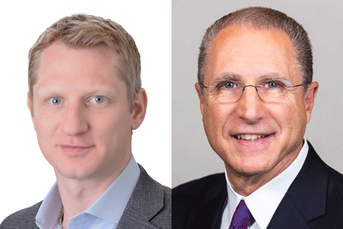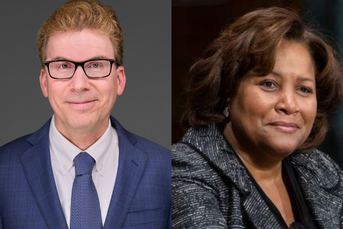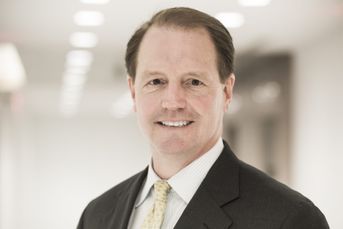Recession fears spark retirement planners to action

As expectations of an economic slowdown grow, retirement planners are already feeling the impact.
Recession, retirement. Retirement, recession. No matter which comes first, financial advisers had better get their clients ready.
Nearly 70% of chief financial officers expect an economic recession during the first half of 2023, according to the CNBC CFO Council survey released last Thursday. Furthermore, not a single CFO forecast a recession any later than the second half of next year, and not one CFO believes the economy will avoid a recession. The CNBC CFO Council Q2 survey was conducted among 22 CFOs at major corporations between May 12 and June 6.
Two consecutive quarters of negative growth is the official definition of a recession. In the first quarter, GDP growth fell 1.5%. The Bureau of Economic Analysis will release its second estimate of second-quarter GDP on Aug. 25.
“In particular with rising inflation, many are having to stretch their paychecks further to cover their daily expenses while seeing their 401(k)s — the largest savings most Americans have — drop due to the market turmoil and fears of a potential recession. That creates a lot of anxiety for people nearing retirement and those with many more working years ahead of them,” said Jessica Baehr, head of group retirement at Equitable.
As for the trajectory of those 401(k) accounts, the so-called “smart money” sees it getting worse before it gets better. Almost 80% of the CFOs surveyed expect the Dow Jones Industrial Average, now hovering around 30,800, to fall below 30,000 before returning to a new high. The price-weighted index has dropped 16% from its all-time high of 36,799 on Jan. 4.
“It’s only natural that in this current environment of economic turbulence — rising inflation, market volatility, supply chain disruptions — Americans are worried about their financial picture,” Baehr added.
INFLATION NATION
The price of consumer goods and services jumped 8.6% in May compared to the previous year, marking the largest 12-month increase since December 1981. Month over month, inflation rose 1% in May, after increasing only 0.3% in April.
The spike in prices is working its way through the system, causing consumers not just to cut back on their purchases at the supermarket, but in the stock market as well. According to last month’s Primerica Middle-Income Financial Security Monitor, a large majority of those who have a retirement account through work or an individual retirement account say the current economy will cause them to either put in less money in 2022 (20%) or about the same amount (56%). Just 7% think they’ll put in more money.
That said, while Americans are learning the hard way that steeper prices at the pump and other places will likely curtail their IRA contributions, they are also realizing the need to accumulate more savings than they previously had considered.
“People are experiencing for the first time in a long time a real difference in buying power, and they are starting to understand that this will mean accumulating a substantial nest egg in retirement to generate income sufficiently for them to maintain their pre-retirement lifestyles,” said Jason Grantz, retirement plan specialist at Integrated Partners. “As a result, we’re having more conversations with people about reducing their current discretionary spending and using it instead to save for later when they’re likely to need it more.”
Before stashing those discretionary dollars away for future use in IRAs, however, investors may want to address their current financial situations. That means getting ahead of rising interest rates. The benchmark 10-year Treasury, now yielding 3.15%, is projected to reach 4% by the end of the year, according to 41% of the CFOs surveyed.
“Pay down high-interest-rate debt — credit cards, auto loans, personal loans — even at the expense of 401(k) contributions beyond the company match,” said Matt Sotir, Northeast regional vice president at Equitable Advisors. “High-interest-rate credit cards are like high blood pressure, the silent killers of financial planning. Paying off these loans will also free up monthly cash flow in the event you are unemployed.”
RECESSION DOES NOT MEAN INACTION
Despite the bull market in pessimism, financial advisers do have the ability to protect their clients’ retirement savings if and when the recession hits.
It starts with the basics, according to the Equitable’s Baehr. And that means diversification.
“You never want to put all your eggs in one basket, so make sure you are spreading out risk for investments to make up for investments that aren’t performing well and taking advantage of the upside of investments that do well,” Baehr said. “A good way to take the guesswork out of this, especially if you aren’t a sophisticated investor, is to put your assets in a target-date fund, which 80% of 401(k) plans now offer.”
Advisers may also counsel clients to fight the urge to decrease 401(k) contributions, or even contribute a little more ahead of the stock rebound that generally accompanies a post-recession economic recovery.
“Economic downturns often can be translated to mean that the market is ‘on sale’ and that’s an opportunity for our clients who are saving regularly to take advantage of investing techniques like dollar cost averaging,” said Integrated Partners’ Grantz. “This longer-term financial planning approach tends to reduce fears because the clients are saving in both up cycles and down cycles and, by way of automation, reduces the likelihood of tinkering that we observed more frequently in prior down markets.”
Finally, Corey Walther, president of Allianz Life Financial Services President, suggests advisers look to structured investments for clients apprehensive about adding more of their hard-earned savings to depreciating stocks and bonds.
“Those investors excessively worried about both the equity and fixed-income markets may want to consider solutions such as annuities or defined-outcome ETFs. These investments enable people to participate in potential upside, although limited, but offer downside protection,” Walther said.
BRIGHT SIDE OF THE DISMAL SCIENCE
For all the doom and gloom highlighted by economic surveys and reinforced by struggling stock indexes, the labor market continues to provide a source of positivity, both for the economy and retirement planners who prefer to see the glass as half-full.
In May, the unemployment rate was a taut 3.6% for the third month in a row, and the number of unemployed people was essentially unchanged at 6.0 million. The more people who are employed, the greater the opportunity for workplace savings plans like 401(k) plans to be used.
“We’re seeing a lot of new plans get formed,” Grantz said. “That’s partly due to the regulatory benefits or state-run initiatives, but another reason is that employees are demanding strong retirement benefits from their employers or potential employers.”
And companies seem to be getting the message, said Marc Schmeeckle, retirement plan consultant at SageView Advisory Group.
“In order to attract and retain key talent, we are seeing employers make strides to improve what they offer through their 401(k) or 403(b). Increased company contributions, shortened vesting schedules and eliminating long eligibility requirements are just a few changes being made by organizations of all sizes and types. Couple this with the dip in the market and it is a great buying opportunity for both young investors and those nearing retirement,” Schmeeckle said.
Finally, even if it’s not outright optimism, there is solace available for those willing to embrace the economy’s uncertainty.
“It’s important to remember that predicting recessions is not a precise science. If a recession occurs, the severity is unknown beforehand, so it doesn’t make sense to overreact just because there might be one,” said Equitable’s Sotir.
Learn more about reprints and licensing for this article.








